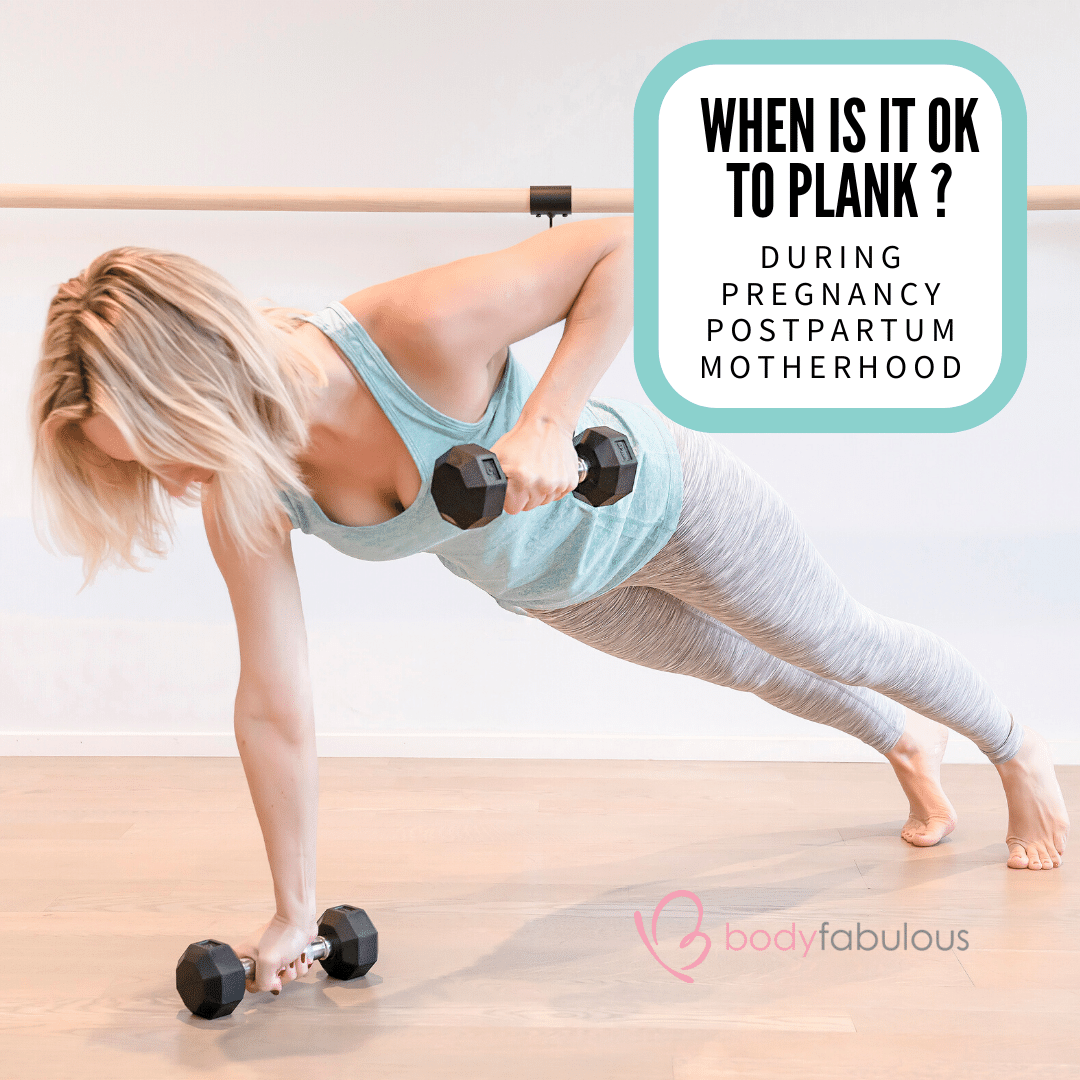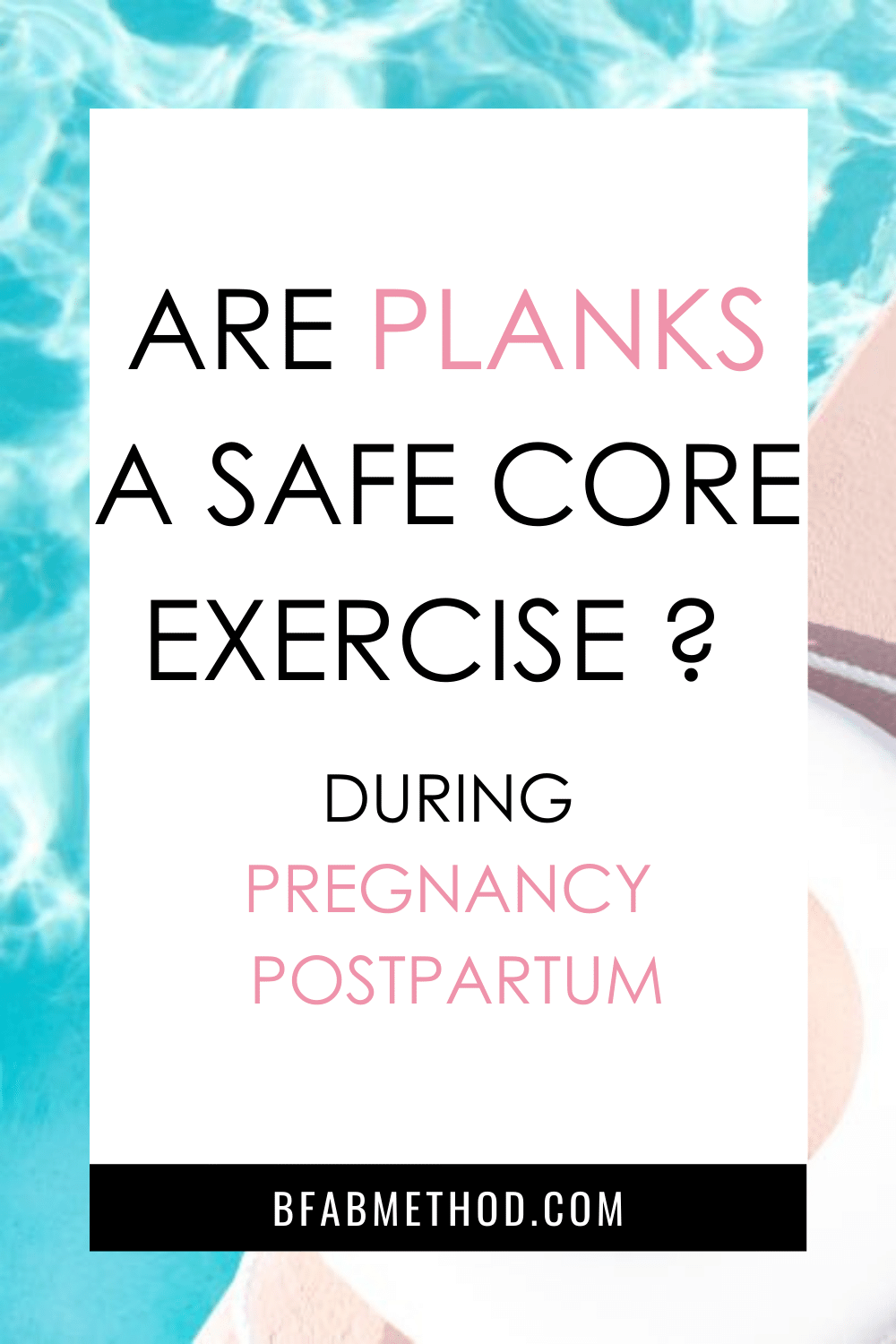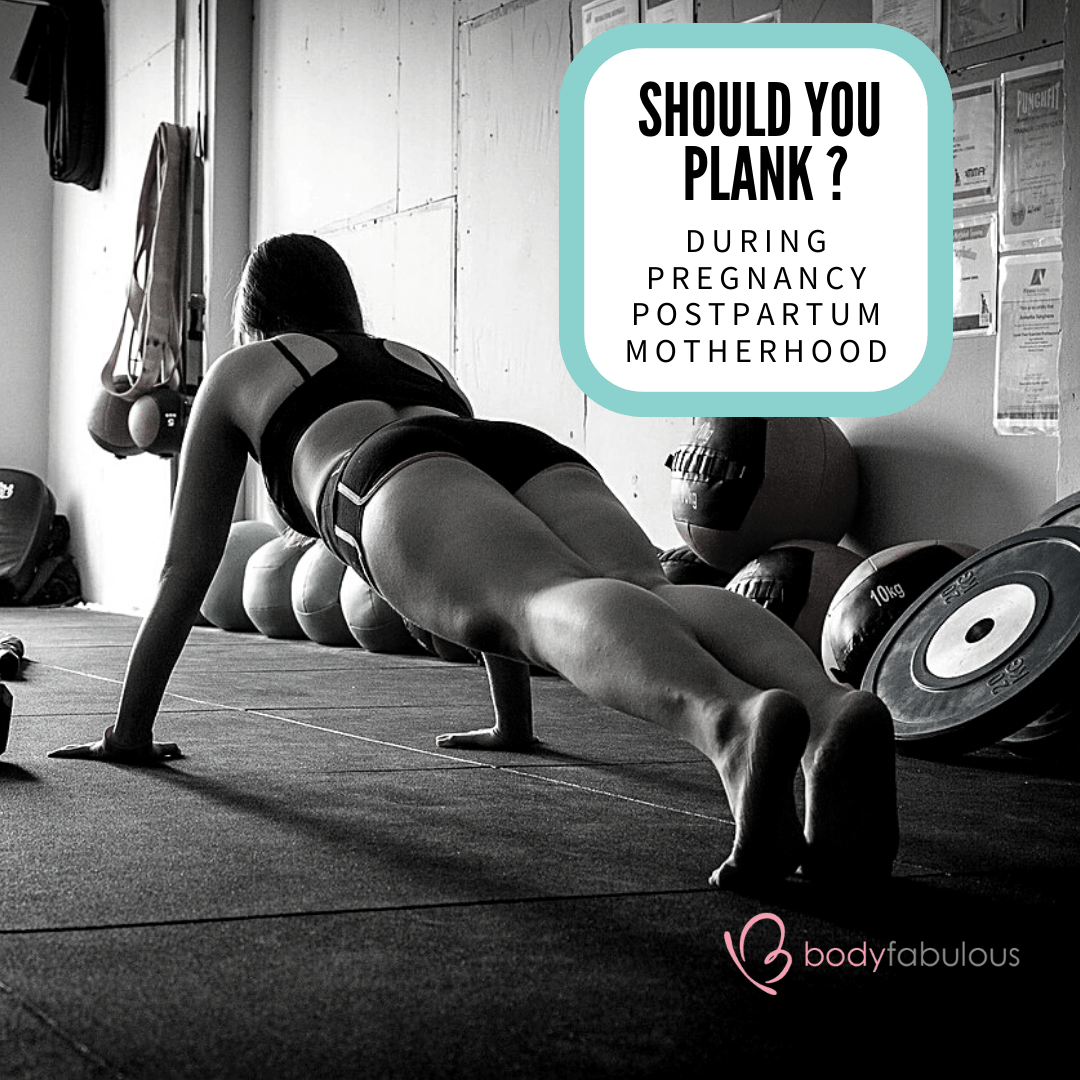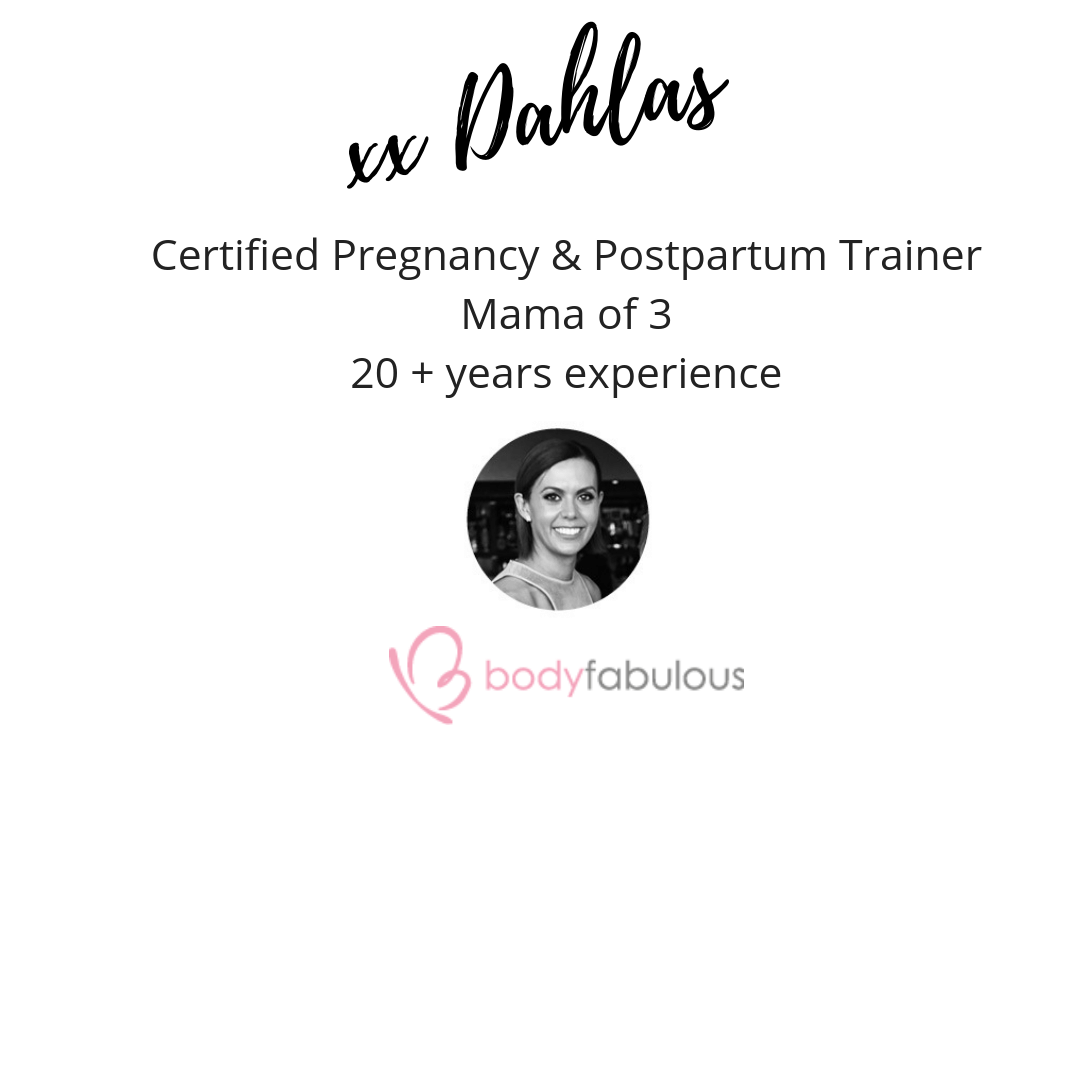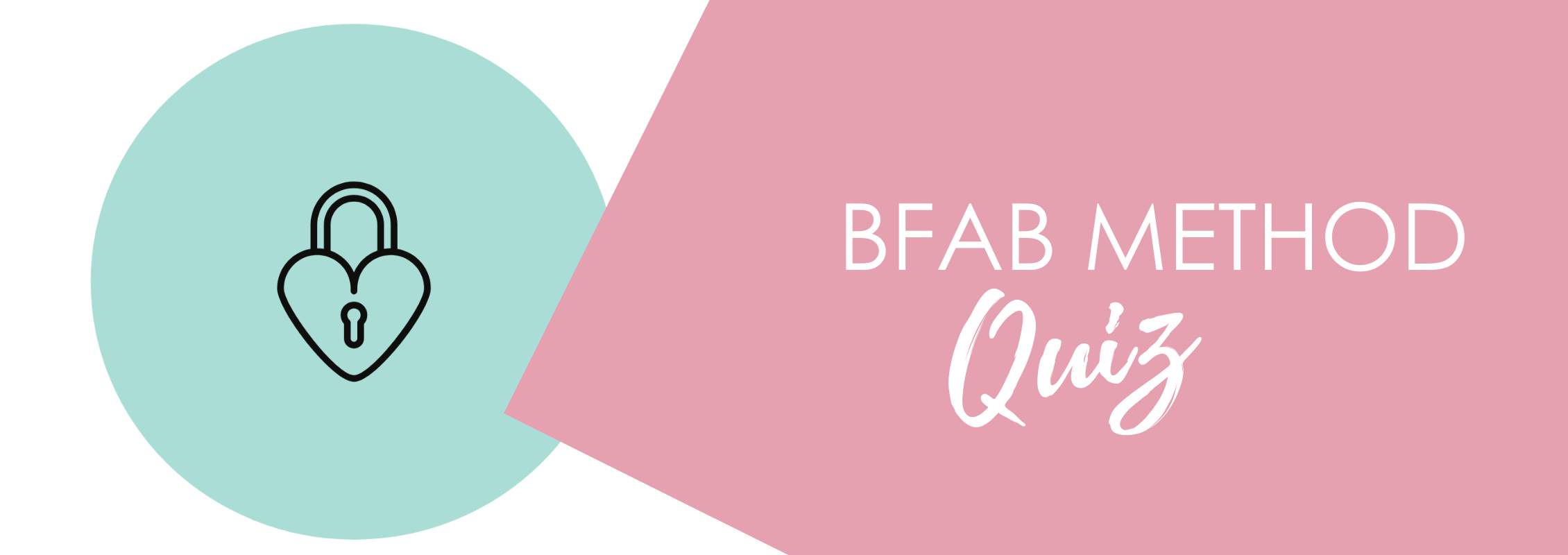I am regularly asked …”can I plank during pregnancy and postpartum to train my core or lose the “mummy tummy”.” Some other questions include… Is a plank safe to do when pregnant ? Will planking help strengthen my core post birth ? Can I plank if I am healing diastasis recti ? What about post birth- I have no abdominal separation am I o.k to plank ?
Are planks safe during pregnancy and post birth ? – is a very BIG Question.
Let’s start with planking during Pregnancy. You might have seen this post on my Instagram page.
A plank is a move you should definitely be avoiding doing during pregnancy.
Why you should avoid planks during pregnancy?
During pregnancy your abdominal’s are naturally separated to make room for your baby. The size and depth of this separation becomes problematic if not managed correctly during pregnancy and can cause you issue post birth, prolonging your recovery.
In this image you can see the pregnant abdominal’s “coning” or forming a triangular / point shape during the plank. This means the abdominal wall is not functioning or activating correctly to support the load. This in turn creates excessive intra-adominal pressure, which can cause damage and strain to the deep core, including pelvic floor.
Please avoid movements like planking during pregnancy. Your pregnancy is only temporary but the damage can be long term.
There are many other exercises you can be doing to safely train your core during pregnancy. Consult a Certified Pre and Post Natal Trainer before you try them or join my online program THE BFAB METHOD inside you will find the ULTIMATE PREGNANT CORE PROGRAM with over 100 safe and effective core workouts for pregnancy, postpartum and any stage of motherhood. Remember just because someone has been pregnant, doesn’t mean they actually know what exercises are safe and effective for you.
Download my FREE Fabulous Guide to Pregnancy for some top tips.
When is it ok to plank postpartum ?
To plank or not to plank post birth / postpartum – is a very important question especially if we are discussing diastasis recti /abdominal separation, or pelvic floor dysfunction/prolapse/incontinence. The good news is that you CAN do something about it (refer back to my previous post about diastasis recti if you need)…
Firstly planks are FABULOUS if they are done safely and effectively…but hang on a sec…, it is ESSENTIAL you know when your body is ready to do planks. So please read on..
Here are some easy plank guidelines to follow if you are Post Natal:
- Remember you are Post Natal forever so it is important to return to exercise when your body is ready. Just because your Dr gives you clearance to exercise at 6-8 weeks postpartum does not mean you can commence EVERY exercise. Your priority is to heal from the inside out….there are many movements other than planking that you can be doing to ensure your core is effectively restoring. This includes effective breathing during movement, functional movements with a pelvic floor focus and avoiding exercises such as planks that create too much intra-abdominal pressure.
Grab my complimentary POSTPARTUM RECOVERY TIMELINE infographic here to help guide you through this process.
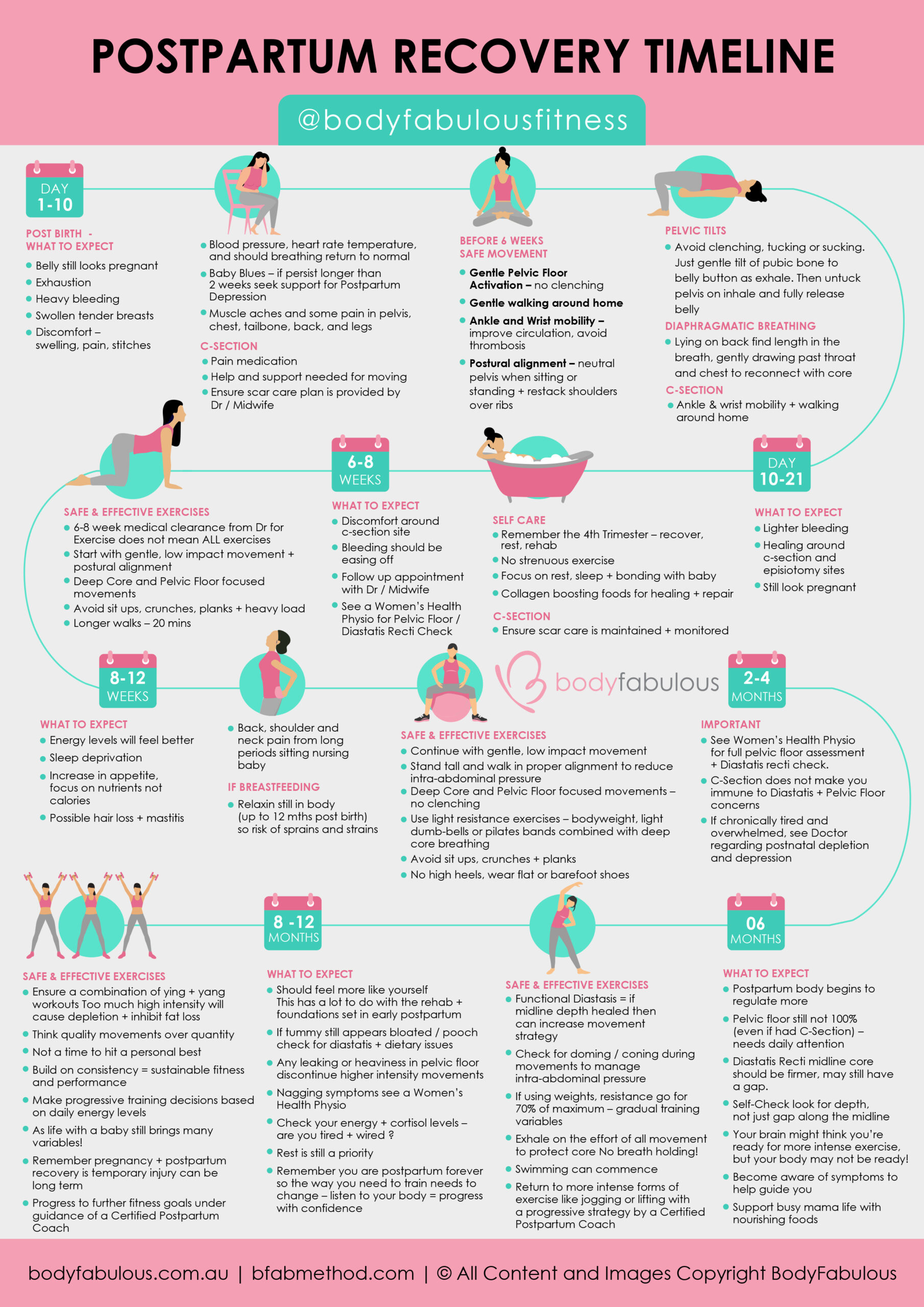
2. Do you have diastasis recti (D.R)? Please have this checked by a Women’s Health Physio around 12 weeks post partum. (learn here why you need to wait at least 12 weeks post birth)
Current Research on Postpartum Core Function :
- 100% of women at birth have some degree of D.R
- Approximately 60% of women will have diastatsis or a degree of separation still at 6 months post birth
- It has been found that over 50% of women with diastatis have some form of pelvic floor dysfunction.
- Just because you have a 6 pack does not mean you don’t have pelvic floor / lower core issues !
Can I plank with Diastatis Recti ?
Having diastasis recti isn’t an automatic “no” it’s a “maybe”. It depends on your answers to the next 3 questions and the advice of your Physio.
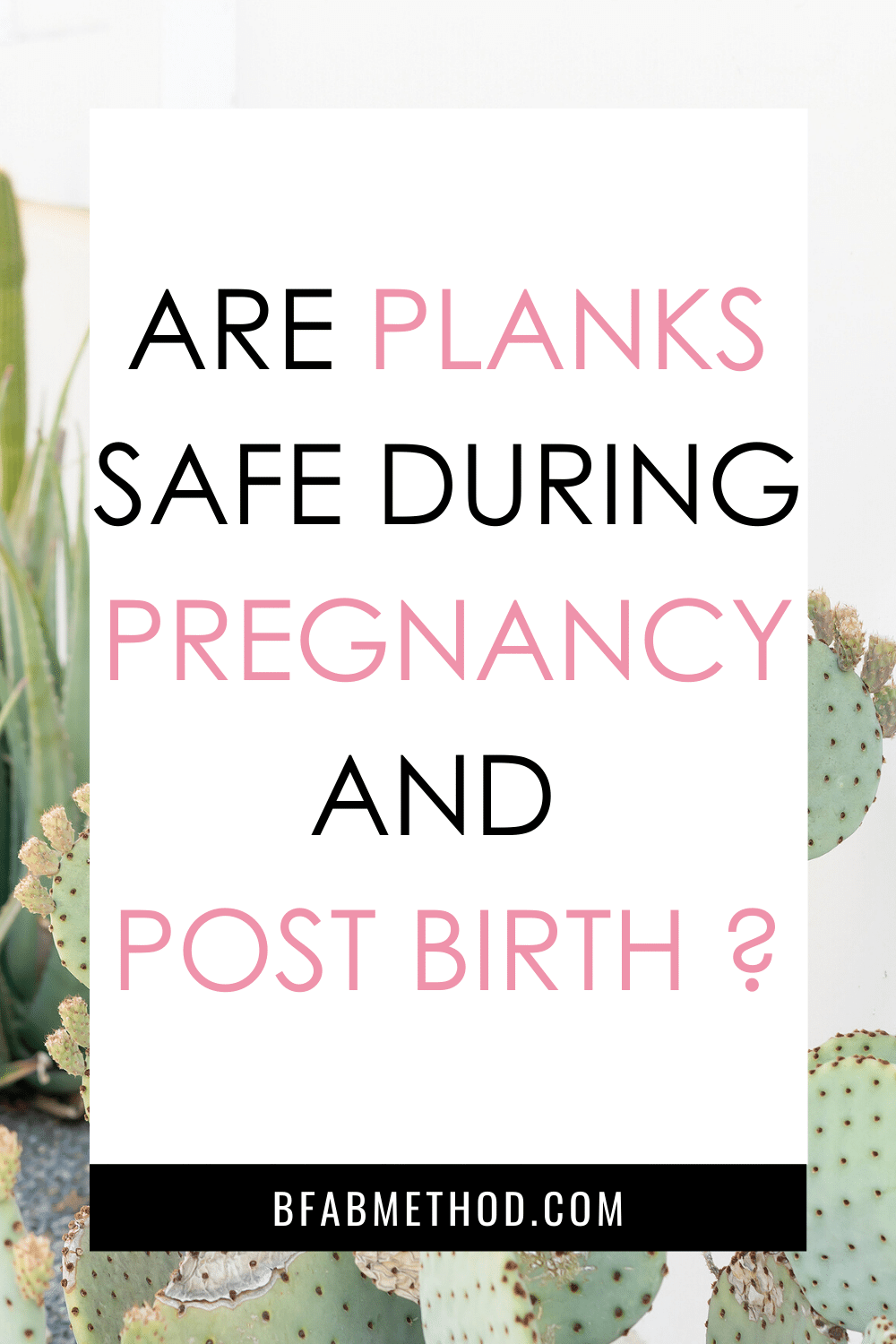
- Do you experience any pelvic floor pressure or issues? ….now don’t be embarrassed, be honest. This includes heaviness ? incontinence? pelvic organ prolapse (or some degree)? If you answered YES to any of those than your body needs more time to heal and planks should definitely be avoided.
- Can you connect your deep core muscles? You must be able to have at least a light deep core connection. Not sure what deep core connection is ? Watch this video where I talk about fascia connection while checking for abdominal separation.
- As mentioned above…do you see any “coning” or “doaming” of your belly ? If you see coning during an exercise, skip that exercise and move on…{for now anyways} as you may be causing damage to your abdominals and also lower back as your core is not functionally activating to support you.
- Can you feel your abdominals connect near your ribcage and your lower abdominal area? If all you feel is pain in your low back then you need to choose modified movements for now and give your body more time to get stronger. Remember this is only temporary !
One of my favourite exercises is a modified side plank. I do love these and teach these to a lot of clients, even clients with diastasis recti (you just gasped – I know!) but let me tell you why.
To start with, I would never recommend side planks in those first weeks of sessions postpartum (diastasis or not), as already mentioned the priority is to allow your body time to heal. However I love, this movement combined with a correct core breath for strengthening those deep core muscles once your body is ready.
That is the KEY to planks, your body MUST be ready…
Please don’t feel like you have to rush recovery ! There are so many other alternatives to planks that effectively train your core. These include – squats, resistance training and also movements in a modified plank position. All of these are very effective core exercises and great for getting those abs back – especially if you learn to breath your way to a better core while doing them !
Want to know more ? Chat further to me about core in my #BFabSquad
Stay Fabulous !
P.S Are you stuck doing the same exercises over and over during pregnancy, postpartum and motherhood and not getting the results you want ? Take my short 20 sec quiz here to help give you clarity on then next best safe and effective steps to take !
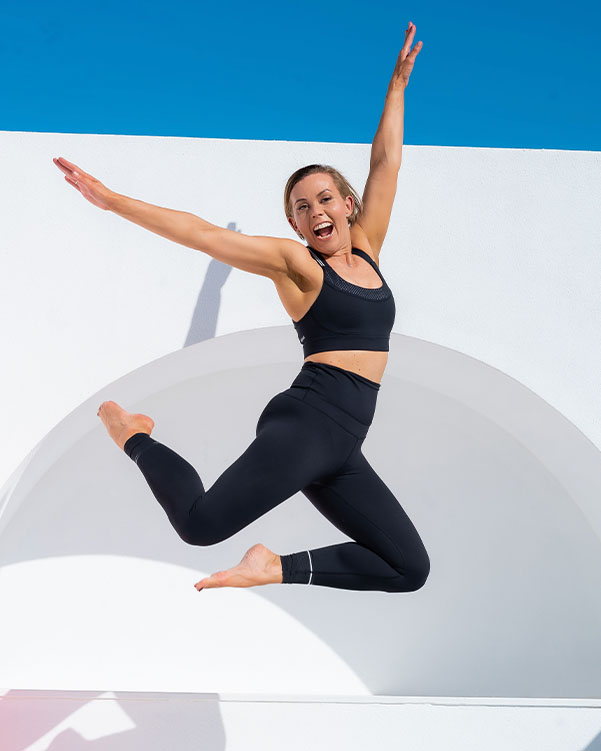
About Dahlas
Dahlas Fletcher is one of Australia’s most respected and successful certified and experienced Pregnancy and Female Fitness Trainers. Her goal is to help you be the happiest, most fabulous version of yourself, inside and out.


